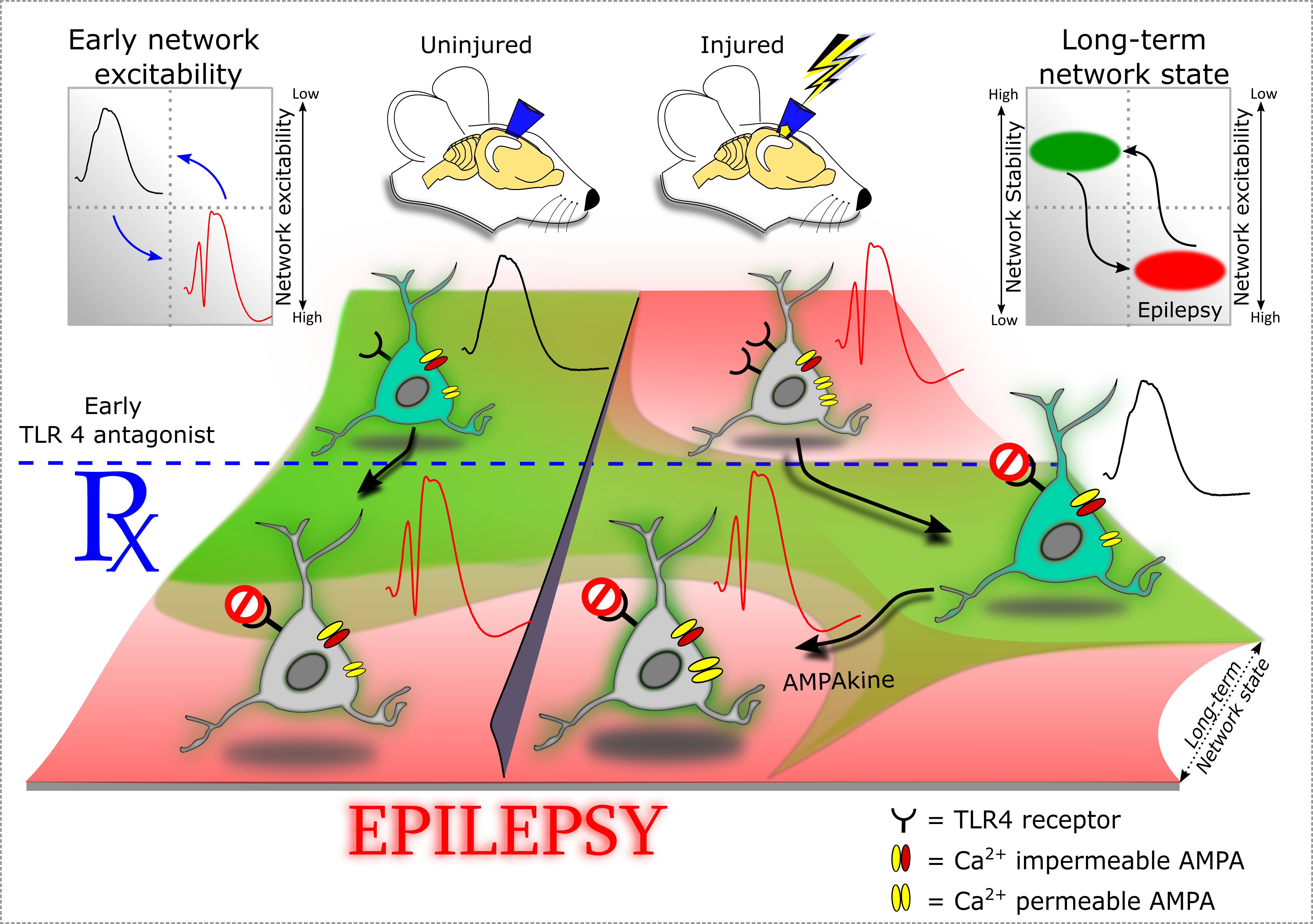Immune activation is an integral part of the brain’s response to injury. The goal of this study is to determine whether perturbations in the innate immune response after brain injury contribute to the early and long-term changes in hippocampal function. The project focuses on toll-like receptors (TLRs) a class of innate immune receptors known to regulate neuronal growth and excitability. We recently reported that TLR4 is present in dentate neuronal types and augmented after brain injury. Furthermore, we identified a novel basal TLR4-dependednt suppression of dentate excitability under normal conditions and a paradoxical TLR4-mediated increase in dentate network and neuronal excitability after brain injury. Using the rodent fluid percussion injury model of concussive brain trauma and neuronal cultures and a combination of current molecular, immunohistochemical and physiological techniques, our studies are testing whether immune receptor modulation can prevent the post-traumatic neurological dysfunction. Ongoing studies will delineate the cellular interactions that mediate the effects of immune receptor activation following brain trauma. These studies have direct relevance to the risk for epilepsy and memory dysfunction in brain injured patients. The project is a collaboration with Drs. Elkabes, and Pang (NJMS). Research is funded by CURE Foundation and NJCBIR.
Past and Current Funding: CURE Foundation CF 259051, NIH/NINDS R01NS097750, NJCBIR CBIR14IRG024

